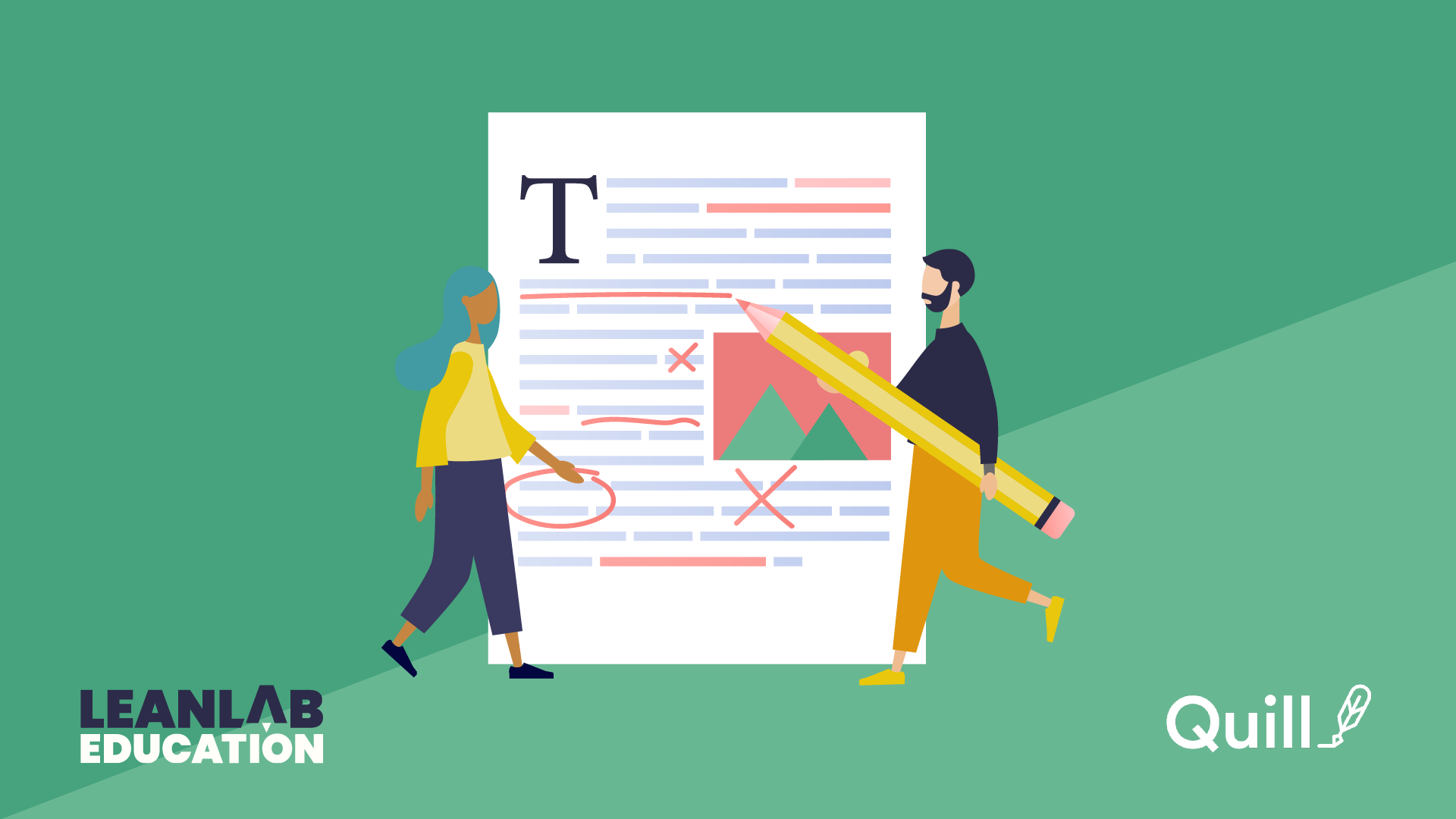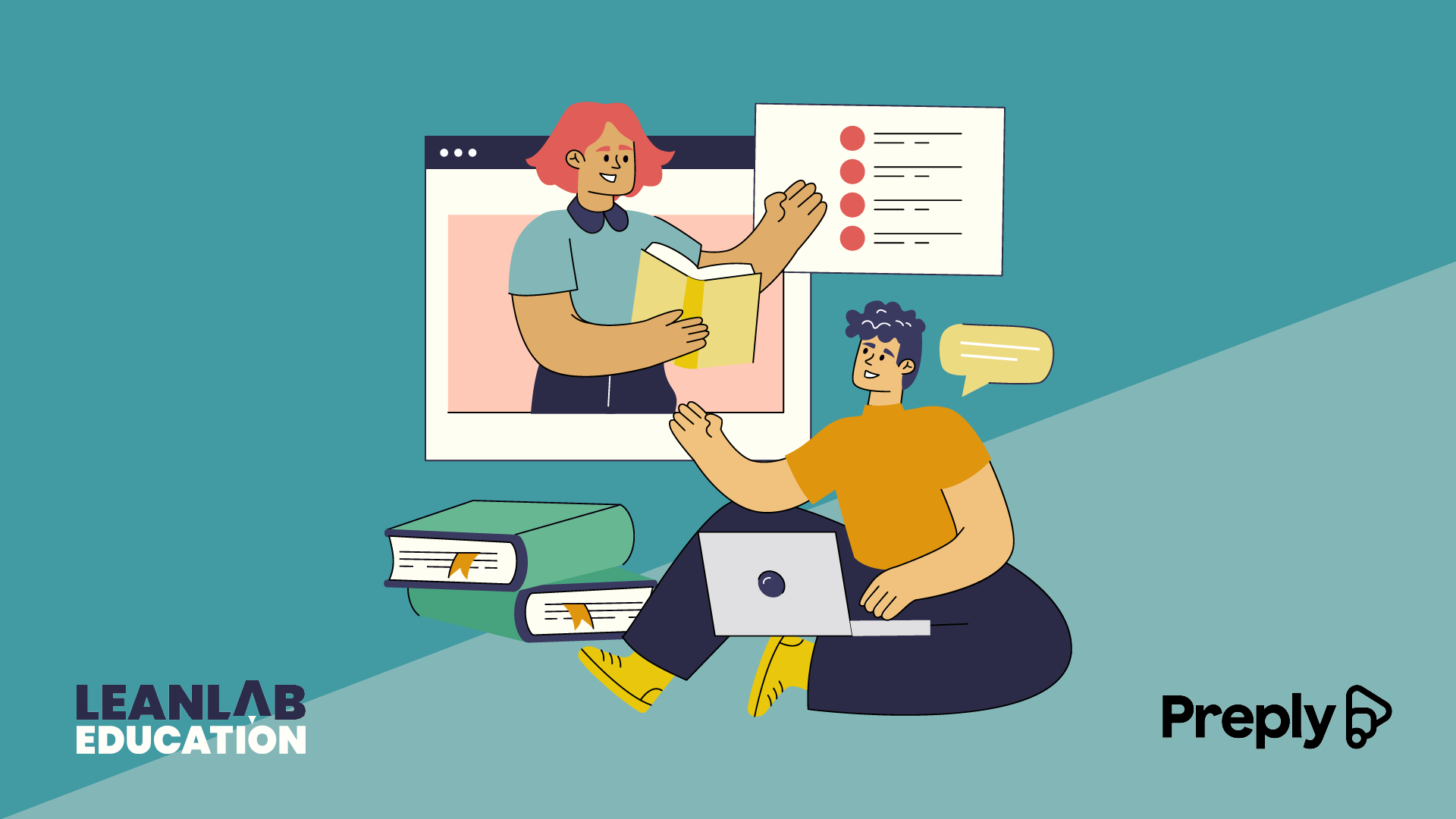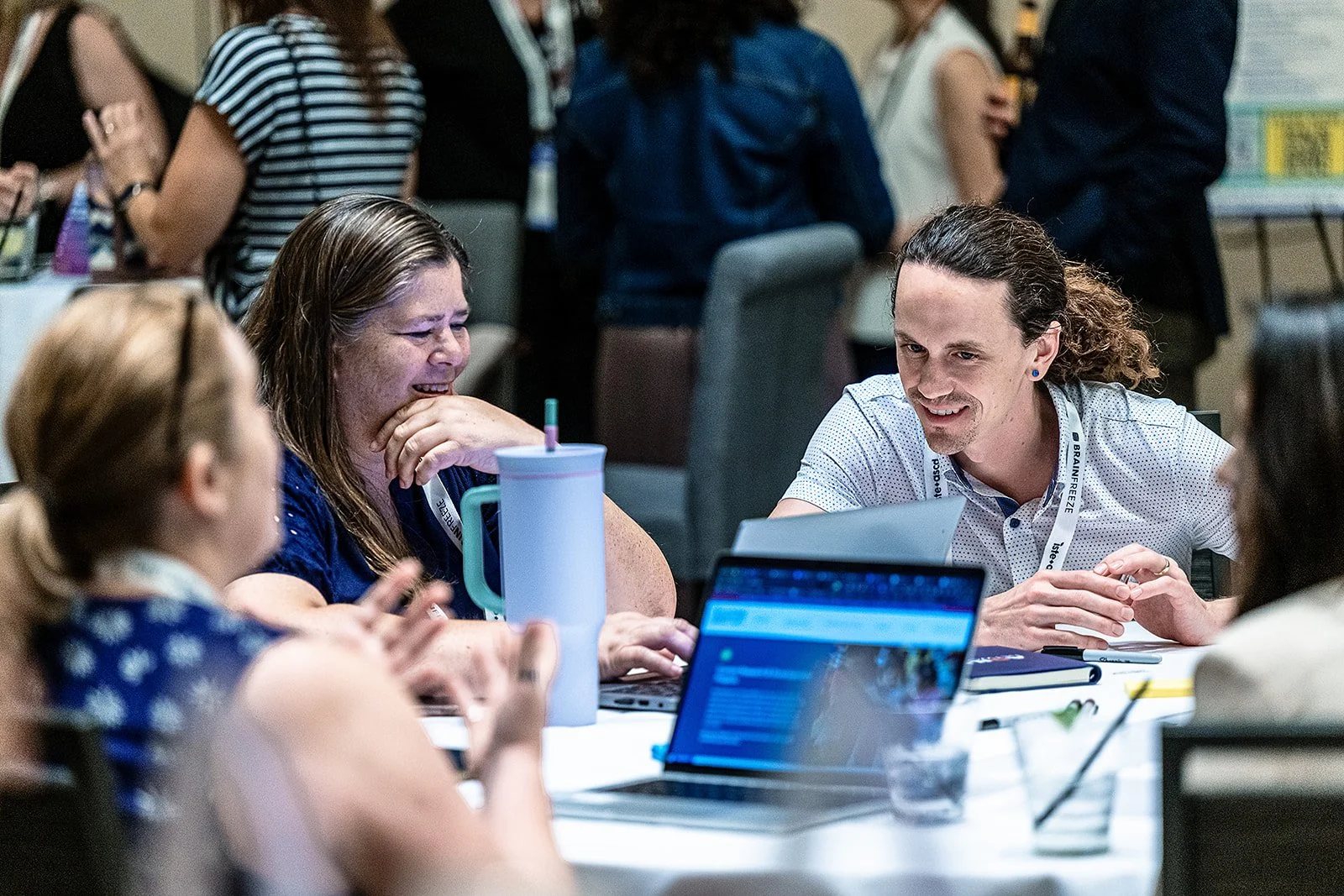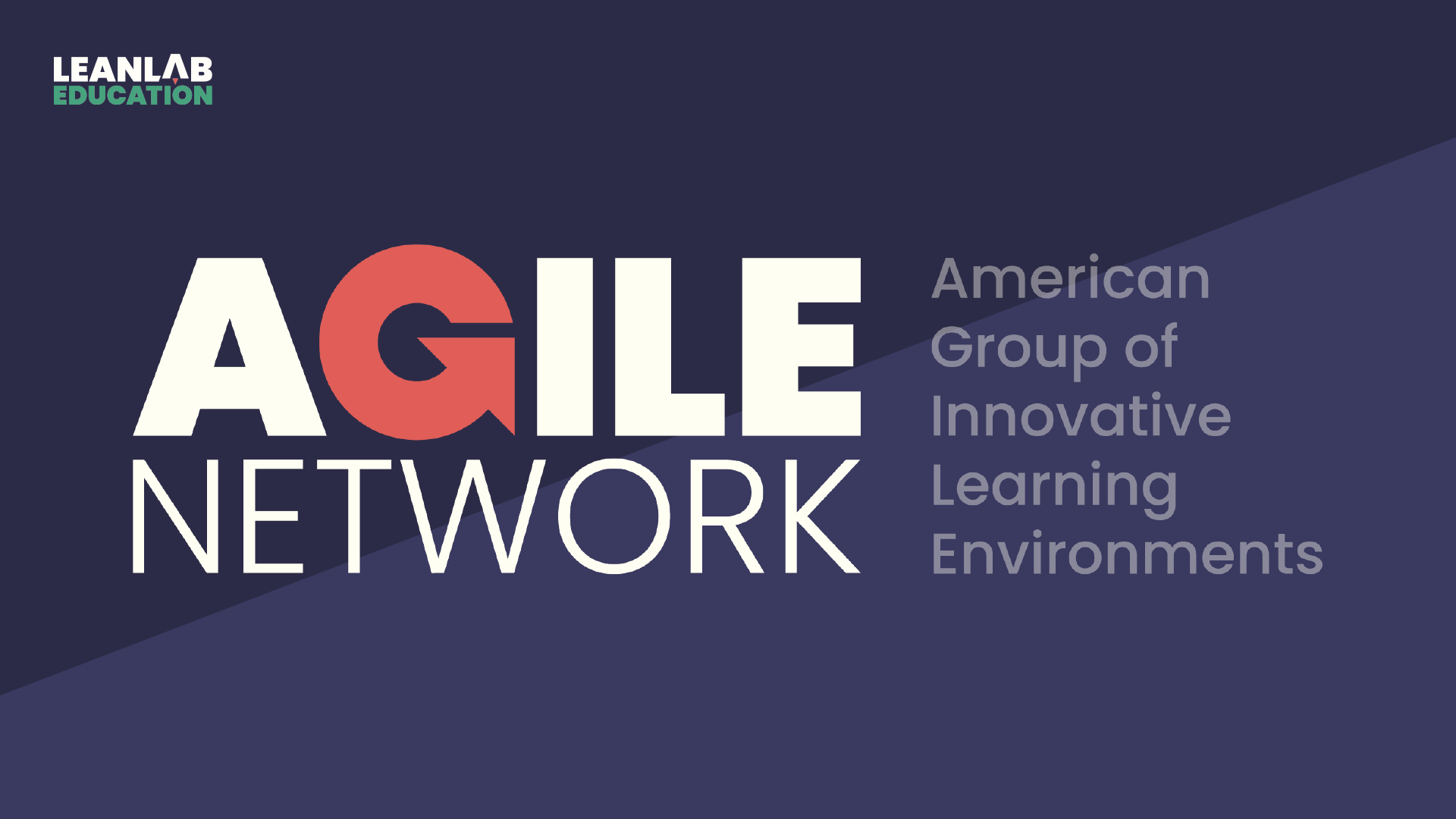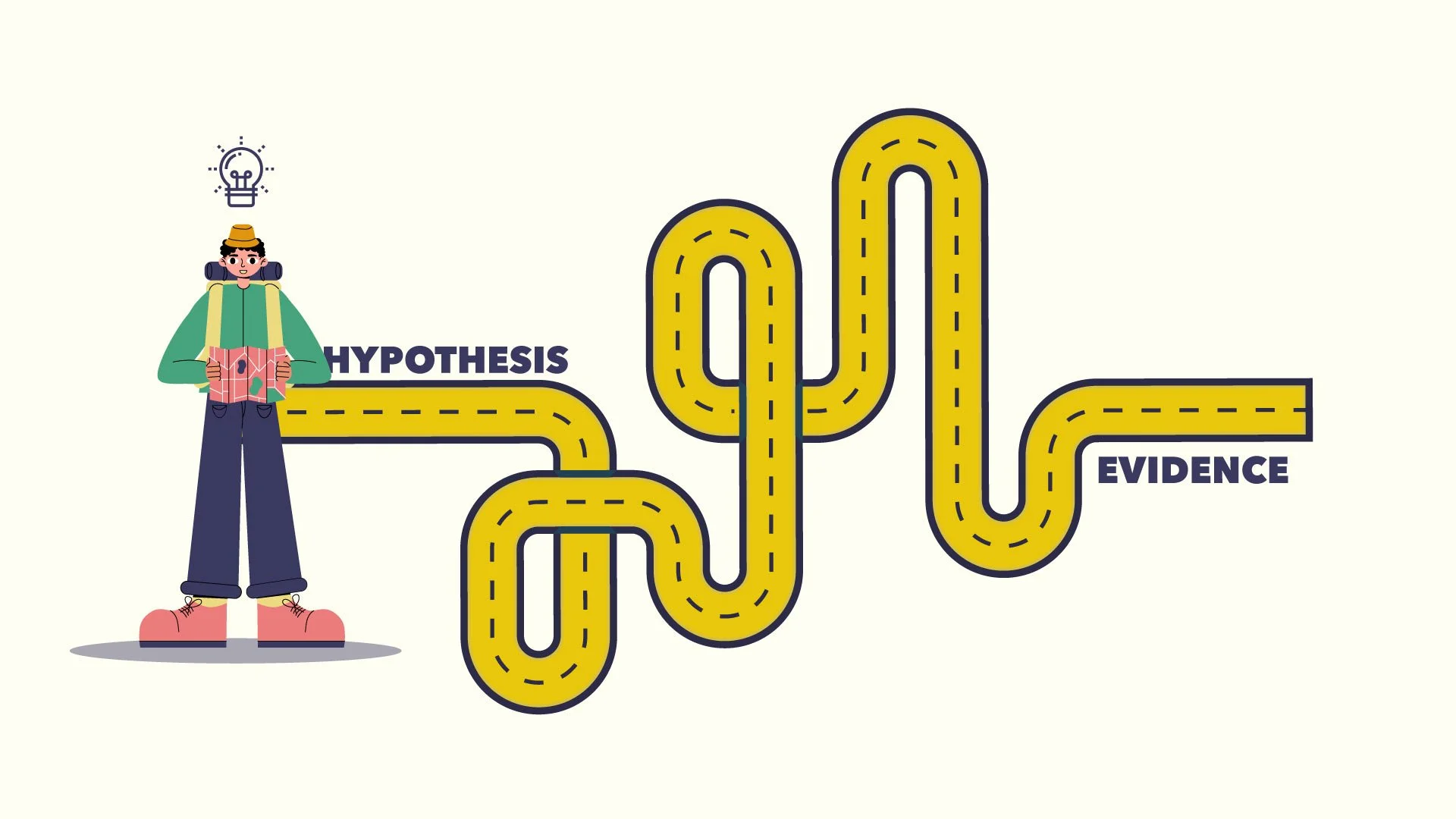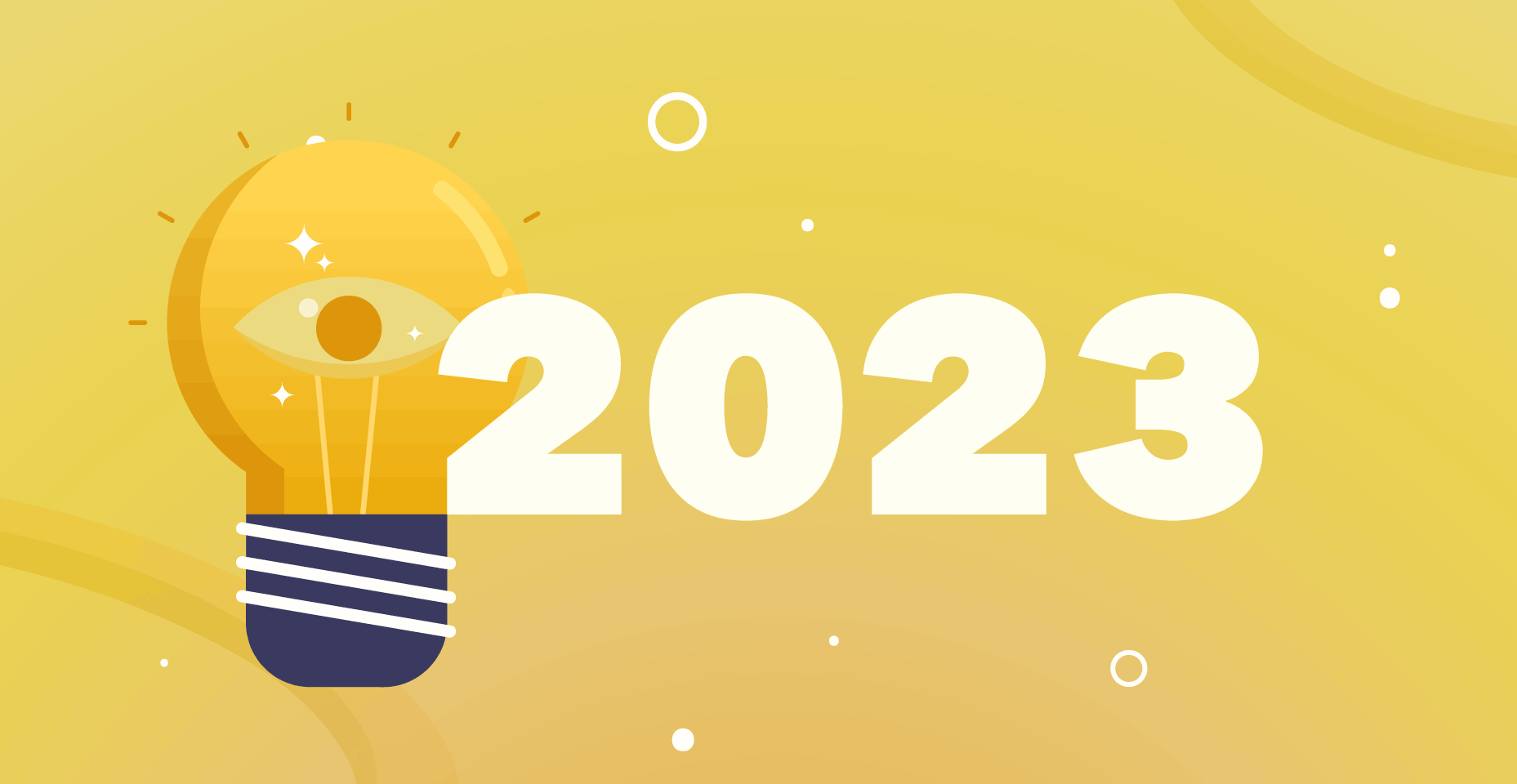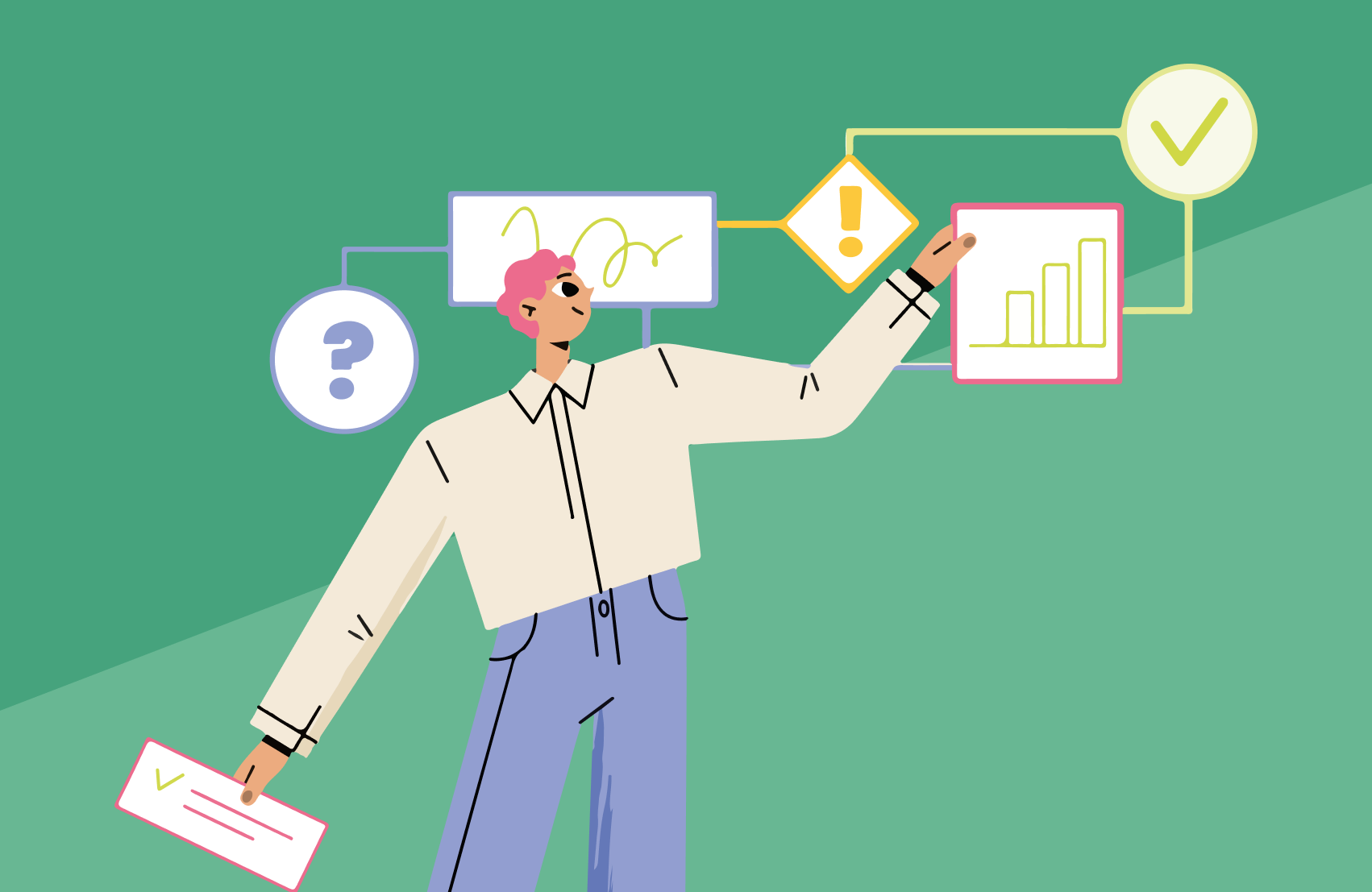BLOG HOME | TEAM | PRESS RELEASES | OPINION

Does consistent use of Quill.org translate into measurable improvements in student writing skills? Quill enlisted Leanlab to examine this question through a large-scale, post-hoc study tracking outcomes for over 100,000 students across 2,600 schools.
For adult English language learners working to improve their English skills and confidence for professional reasons, how effective is one-on-one online language tutoring? This question was central to a 2025 research partnership between Leanlab Education and Preply, a global language learning platform.
The most powerful innovations in education emerge when researchers, developers, and educators work side by side. That's why Leanlab Education is partnering with NewSchools Venture Fund on an ambitious research initiative exploring how generative AI can transform math tutoring for K-12 students.
Seismic shifts in the federal policy landscape and the progression of AI have left our education research and edtech communities bobbing, weaving, and strategy-refreshing our way through 2025. It’s within this context that Leanlab CEO Katie Boody Adorno returns to this 2023 piece. She reflects on how much has changed in the education landscape since then, how prescient some of her predictions proved to be, and how urgent others have become.
Leanlab Education recognizes companies that demonstrate commitment to research-based practices and user-centered design through our badge programs. This spring and summer we awarded badges to companies that have shown dedication to evidence-based development and meaningful user feedback integration.
At Leanlab Education, we believe that the most transformational education innovations emerge when educators, students, and families are at the center of product development. This belief guided our recent research partnership with Barbershop Books, Inc. to pilot their Reading So Lit® platform for PK-3, a first-of-its-kind learning personalization solution designed to support reading identity development, a critical gap in early literacy education.
The traditional landscape of education innovation often feels siloed. Researchers conduct studies, edtech startups build tools, investors inject capital, and educators are left at the tail end, hoping something works for their students. This incoherent marketplace, where solutions often lack substantial evidence of their effectiveness and are built without a deep understanding of the problems, was the central challenge addressed during the session “Uncovering the Hidden Gems: A State and Regional Deep Dive into R&D” at this year’s ISTELive and ASCD Annual Conference with Advanced Education Research and Development Fund (AERDF), Leanlab Education, Learner-Centered Collaborative, Alliance for Learning Innovation (ALI), and InnovateEDU.
Leanlab Education recently partnered with Adobe for Education and teachers across the country to explore how generative AI tools can foster creativity in K12 classrooms.
Get to know Leanlab’s new Principal Researcher, Rebecca McGill-Wilkinson
Does consistent use of Quill.org translate into measurable improvements in student writing skills? Quill enlisted Leanlab to examine this question through a large-scale, post-hoc study tracking outcomes for over 100,000 students across 2,600 schools.
Connect with the Leanlab Education team at ISTELive 25 from June 29 - July 2.
With uncertainty across the educational landscape—the expiration of ESSER funds and shrinking public school district budgets, cuts to federally funded research initiatives, and opportunities and challenges around AI integration—we need to understand where, when, and how to create systems that support and sustain learner-centered change no matter what comes next.
Get to know Leanlab’s new Chief Operating Officer, Amber Daniels Hatz.
The education industry is more dynamic than ever, with regular shifts in funding, policies, classroom needs, and available technology. So how can education technology companies navigate this instability while developing quality products and scaling their business?
Navigating the US education system is no small feat, especially for new or international edtech companies unfamiliar with its complexities. Leanlab Education’s Director of Edtech Partnerships Andy Midgette outlines key pathways to entering the US edtech market in a new video.
With the explosion of AI in education since ChatGPT’s release in November 2022, the edtech market has seen an influx of tools promising revolutionary changes to teaching and learning. But are these tools meeting real classroom needs? Leanlab Education set out to answer this question by working with five edtech companies, each developing AI-powered solutions, through codesign research involving over 40 teachers and their students across the U.S.
In a two-part webinar series, Leanlab researchers, entrepreneurs, and impact investors came together to discuss high-level learnings from Leanlab’s 2023-2024 AI research, recommendations for edtech companies developing AI tools, and the importance of building trust with educators through codesign.
In an article for Edtech Insiders, Leanlab CEO Katie Boody Adorno discusses the importance of inclusive innovation in edtech—particularly with the rapid development and adoption of AI technologies— and how organizations are collaborating to transform education R&D to better support educators and students.
Leanlab Education launched the American Group of Innovative Learning Environments (AGILE) Network at ISTELive24 with members from learning environments across the country, including school systems, teachers, and non-traditional learning environments. Comprised of education communities on the cutting edge of innovation, the AGILE Network works to accelerate the pace of education research and development.
Correlational research is a type of research that helps companies examine relationships between their products' usage and learning outcomes, engagement levels, and other user experiences.
In an interview with the Department of Education’s Office of Educational Technology, CEO Katie Boody Adorno reflects on Leanlab Education’s evidence-building partnership work with edtech developers and schools in response to the prompt, “Please describe Leanlab Education’s partnership work with edtech developers and schools to support evidence-building practices across the levels of evidence.”
Educators and students are the source of truth on the classroom experience, and they hold invaluable knowledge as the end users of many edtech products. Leanlab Education’s research taps into their expertise by bringing together innovative educators and school districts to collaborate with edtech companies seeking to solve real problems in education.
In an environment where top-down federal regulation demanding rigorous evidence of edtech is unlikely, we must work to leverage market forces for good. To do so, we need to work to find the middle ground between solution providers' natural go-to-market inclinations and revenue obligations and R&D; where do those two intersect? School Systems and Educators.
Usability testing is a type of product research that helps companies establish a better understanding of the mindset and experiences of people interacting with their product.
Edtech companies like Speak Agent are using research to codesign and evaluate their products with the input of educators, students, and parents at every stage of development.
What makes a school system “research ready?” What resources can be provided for them to become research ready? How can you purposefully design research studies with the constraints of schools at the forefront?
Despite the dire reports, we’re optimistic that 2023 is full of potential for radical transformation. We have been paying close attention to the dynamics of research in the edtech ecosystem and how it will impact education in the coming months and years.
Formative and summative research are used to evaluate product design. However, which of these two evaluations you conduct will depend on where you are in the design process.
The goal of an implementation pilot is to establish concrete guidelines for how an edtech tool should be used by educators and learners in an authentic context that creates and sustains long-term, quality engagement with the tool.

